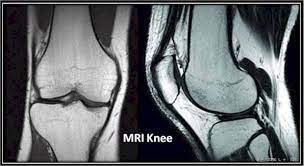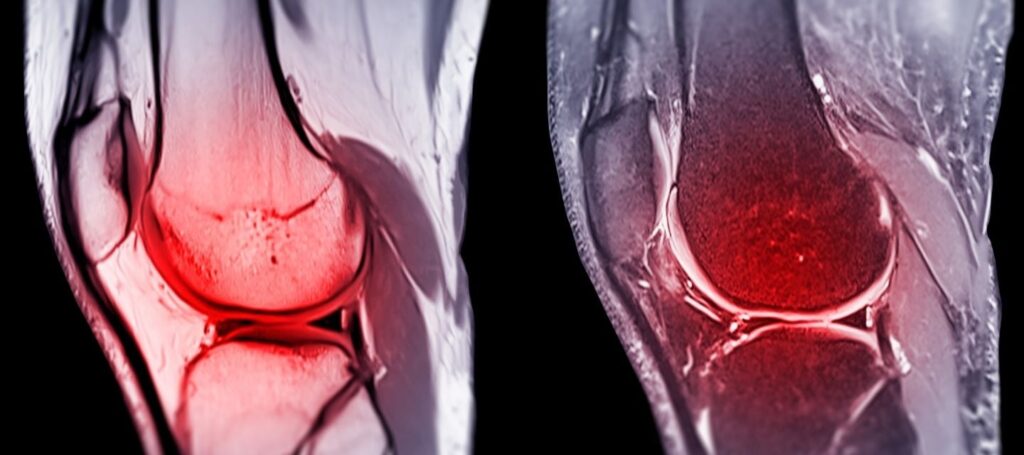Knee MRI: A Comprehensive Guide
If you have been experiencing knee pain or discomfort, your doctor may recommend a knee MRI (Magnetic Resonance Imaging) scan to diagnose any underlying issues. An MRI is a non-invasive imaging test that uses magnetic fields and radio waves to produce detailed images of the knee joint.
This article will cover everything you need to know about knee MRI scans, including the procedure, preparation, and what to expect during and after the test.
Why do you need a knee MRI?
A knee MRI can help diagnose a wide range of conditions, such as torn ligaments, meniscal tears, cartilage damage, and arthritis. It can also be used to assess the extent of injuries, such as fractures, and to monitor the progress of treatment.

The procedure
During a knee MRI, you will lie down on a table that slides into the MRI machine. You will be asked to remain still during the scan to ensure that the images are clear and accurate. The machine will create a series of loud banging and tapping sounds during the scan, which can be a bit unnerving, but it is perfectly safe.
The entire process can take up to an hour, depending on the number of images required.
Preparing for the MRI
There are a few things you need to do before your knee MRI. Firstly, you should inform your doctor if you have any metal implants, as they can interfere with the MRI machine. You should also avoid wearing jewelry or any other metallic objects during the scan.
In some cases, your doctor may administer a contrast dye to help highlight certain structures in the knee. If this is the case, you will need to fast for a few hours before the scan.
It is also important to let your doctor know if you are claustrophobic, as they may offer you a mild sedative to help you relax during the scan.

What to expect after the MRI
After the scan, you can resume your normal activities immediately. There is no downtime or recovery period required. Your doctor will review the images and discuss the results with you at a follow-up appointment.
Conclusion
A knee MRI is a safe and effective imaging test that can help diagnose a wide range of knee-related conditions. If you are experiencing knee pain or discomfort, talk to your doctor about whether a knee MRI is right for you.
Remember to inform your doctor if you have any metal implants, avoid wearing jewelry or metallic objects, and let them know if you are claustrophobic. By following these simple steps, you can ensure a smooth and successful knee MRI experience.

Q: What is a knee MRI?
A: A knee MRI is a non-invasive medical imaging test that uses magnetic fields and radio waves to produce detailed images of the knee joint.
Q: Why would I need a knee MRI?
A: A knee MRI can help diagnose a wide range of conditions, such as torn ligaments, meniscal tears, cartilage damage, and arthritis. It can also be used to assess the extent of injuries, such as fractures, and to monitor the progress of treatment.
Q: Is a knee MRI safe?
A: Yes, a knee MRI is generally considered safe for most people. However, if you have any metal implants, you should inform your doctor, as they can interfere with the MRI machine.
Q: How long does a knee MRI take?
A: The entire process can take up to an hour, depending on the number of images required.
Q: Is there any preparation required for a knee MRI?
A: Yes, there are a few things you need to do before your knee MRI. Firstly, you should inform your doctor if you have any metal implants, as they can interfere with the MRI machine. You should also avoid wearing jewelry or any other metallic objects during the scan. In some cases, your doctor may administer a contrast dye to help highlight certain structures in the knee. If this is the case, you will need to fast for a few hours before the scan.
Q: What should I expect during a knee MRI?
A: During a knee MRI, you will lie down on a table that slides into the MRI machine. You will be asked to remain still during the scan to ensure that the images are clear and accurate. The machine will create a series of loud banging and tapping sounds during the scan, which can be a bit unnerving, but it is perfectly safe.
Q: Is there any downtime required after a knee MRI?
A: No downtime or recovery period is required after a knee MRI. You can resume your normal activities immediately.
Q: What happens after the knee MRI?
A: Your doctor will review the images and discuss the results with you at a follow-up appointment.